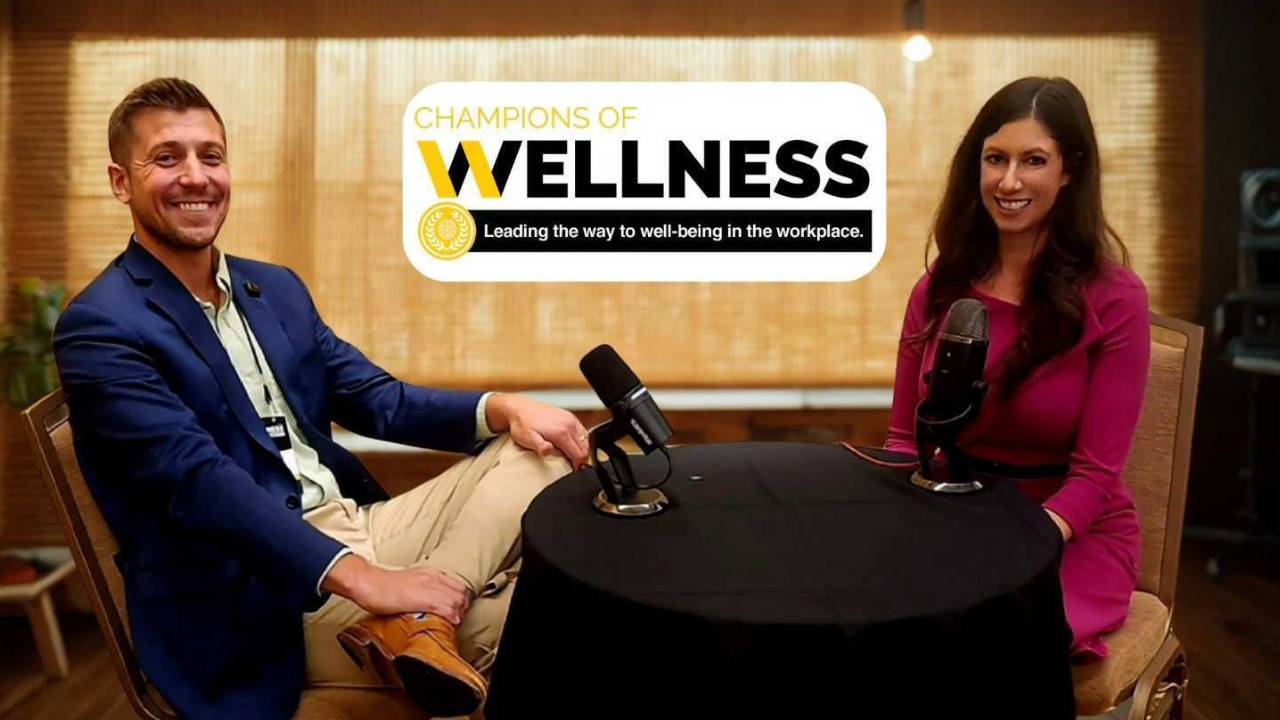The 5 Hidden System Failures Draining Physician Wellbeing — and the Strategic Shifts to Fix Them
Oct 13, 2025
Insights from Interviews at the Champions of Wellness Healthcare Summit at Mayo Clinic
Every hospital in America says they’re addressing physician wellbeing.
But after dozens of in-depth conversations at the Champions of Wellness Summit, one truth was impossible to ignore:
Most systems are measuring burnout but need to do more to truly fix it.
Across specialties, locations, and roles, the same frustrations surfaced, patterns that reveal why good physicians are leaving, leaders are exhausted, and “wellness” often feels like a checkbox instead of a strategic advantage..
These are the five most common - and costly - system failures we heard firsthand.
1. Disconnection from Purpose
“A big part of burnout comes from people losing connection to their purpose, to the role and to the people they’re supporting. The people I’ve seen who stay engaged and thrive are the ones who stay passionate about what they’re doing and who they’re doing it for. But when that connection fades, when it feels like the work becomes about checking boxes instead of helping someone, people stop seeing how their work impacts patients — and that’s when burnout sets in.”” — Craig Ogurek, System Director, Employee Health & Wellness
When the day-to-day grind overshadows meaning, the human brain begins to detach as a form of protection.
Purpose isn’t a “soft” concept, it’s a neurological performance driver. Without it, engagement and cognitive clarity plummet.
Shift to make: Reconnect people to why their work matters.
Use stories, peer recognition, and transparent metrics that tie effort to impact. Purpose restores energy faster than any yoga session ever could.
2. Lack of Autonomy and Flexibility
“You can’t expect people to thrive in environments that don’t allow flexibility or recognize individual strengths. We all work differently. And if you have a system that’s not adaptable to that, you’re going to lose a lot of good people.” — Dr. Prassana Tadi, Stroke Neurologist and Coach
Rigid scheduling and one-size-fits-all workflows are killing motivation.
Autonomy activates the brain’s reward centers — it’s not a perk, it’s a physiological requirement for sustained performance.
Shift to make: Give physicians and staff agency.
Small wins, like requesting their input on important decisions that impact their schedule, equipment, or patient care, create massive ripple effects in retention and morale.
3. Fear-Driven Cultures
“It’s scary to be a doctor, and no one says that. We just expect people to go and do the work and be resilient. But underneath that, there’s a lot of fear — fear of getting sued, fear of being wrong, fear of being the one to speak up. We talk about resilience, but no one talks about how much of healthcare culture runs on fear.” — Dr. Deborah Bradshaw, Neurology Faculty Leader
Fear of litigation, leadership backlash, or making mistakes creates reactivity and silence.
When fear dominates, the prefrontal cortex (responsible for reasoning and empathy) is suppressed, leaving teams in a constant stress loop.
Shift to make: Build psychological safety into leadership routines and provide leadership training or coaching to all physicians.
Normalize reflection, post-event debriefs, and curiosity-driven dialogue. Fear loses power when people feel seen, not judged.
4. Communication Breakdowns That Cost Millions
“A 15-minute conflict between a surgeon and a nurse essentially shut down the OR and cost my hospital over $100,000 in non-productive time. That conflict wasn’t related to a patient, it was caused by poor communication, assumptions, and ego.” — LynAnn Weaver, CEO of Healthcare Elevation Partners and Former Regional Service Line Director
The cost of miscommunication isn’t just emotional — it’s financial.
Conflict avoidance, unclear expectations, and poor communication drain productivity, destroy trust, and compound stress.
Shift to make: Train leaders in high-stakes communication.
Frameworks that reduce defensiveness and increase clarity pay measurable dividends in team performance and operating margins.
5. Financial Stress That Undermines Wellbeing
“We need to talk more about how financial stress impacts wellbeing. Because if you don’t understand your personal and professional finances, you can feel really trapped. And that’s a huge driver of burnout. I'm seeing physicians who do locums on the weekend because they don’t know how to get enough patients to financially sustain their practice or personal income, which is a huge cause of burnout, because they're never getting that rejuvenation time.” — Mary Wolf, Counselor & Executive Coach
Even high earners feel powerless when they can’t control or predict their income.
For physicians, financial anxiety is less about money and more about agency. When they don’t know how to grow their practice, advocate for resources, or build stability, wellbeing erodes.
Shift to make: Integrate financial literacy and business education into physician onboarding or training programs.
When clinicians understand both the care and the commerce of medicine, they move from anxiety to autonomy.
The Pattern Behind It All
The Pattern Behind It All
This isn’t about broken people.
It’s about brilliant people working inside broken systems.
Physicians don’t burn out because they care too little — they burn out because they care deeply inside systems that make it nearly impossible to do their best work.
The fix isn’t a quick wellness program.
It’s alignment — restoring purpose, trust, and leadership inside the structures that determine how healthcare actually feels to deliver.
Wellbeing isn’t a side initiative.
It’s a performance multiplier.
Up Next (Part 2):
“Five Shifts That Actually Work—How High-Performing Health Systems Are Rebuilding Growth and Wellbeing from the Inside Out.”
Continue the Conversation
If you’d like to explore how to embed leadership, wellbeing, and performance strategy into your hospital or practice:
📅 Schedule a confidential strategy conversation
👉healthcareelevation.com/strategy-session
Because when systems support the people who power them—
every metric that matters elevates.
By LynAnn Weaver, CEO, HealthCARE Elevation Partners
